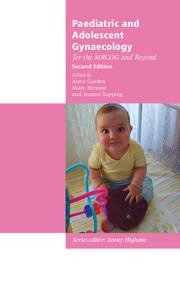Book contents
1 - Pubertal growth and development
Published online by Cambridge University Press: 05 July 2014
Summary
Menarche
The menarche is an important event in a girl's life and one that has special significance in many cultures. There has been a gradual reduction in the age of menarche in the UK over the 20th century, with a decrease of about 3–4 months per decade, which has been thought to be due to improvements in health and nutrition. The average age of the menarche in 1840 was 16.5 years and is presently 12.8 years (with a normal range of 10.0–16.5 years). There has been a recent upturn in the age of menarche in the UK for reasons that are not clear, although it has been suggested that an increase in exercise and the desire to be slim may be factors. This reversal in the age of menarche has also occurred in other countries, including Iceland, Poland, Italy and Sweden but not Germany.
FACTORS DETERMINING THE AGE OF MENARCHE
Genetic factors
Nutritional factors
Socio-economic status
Geographic location
General health
Exercise
The age of menarche is determined by several factors. The importance of genetic factors is underlined by studies showing mother-daughter pairs and in twins, with identical twins having a closer relationship in age of menarche than non-identical twins. The role of body weight and the percentage of body fat in the age of menarche has been debated, with the consensus of opinion being that weight is the more important factor.
- Type
- Chapter
- Information
- Publisher: Cambridge University PressPrint publication year: 2008
- 1
- Cited by



